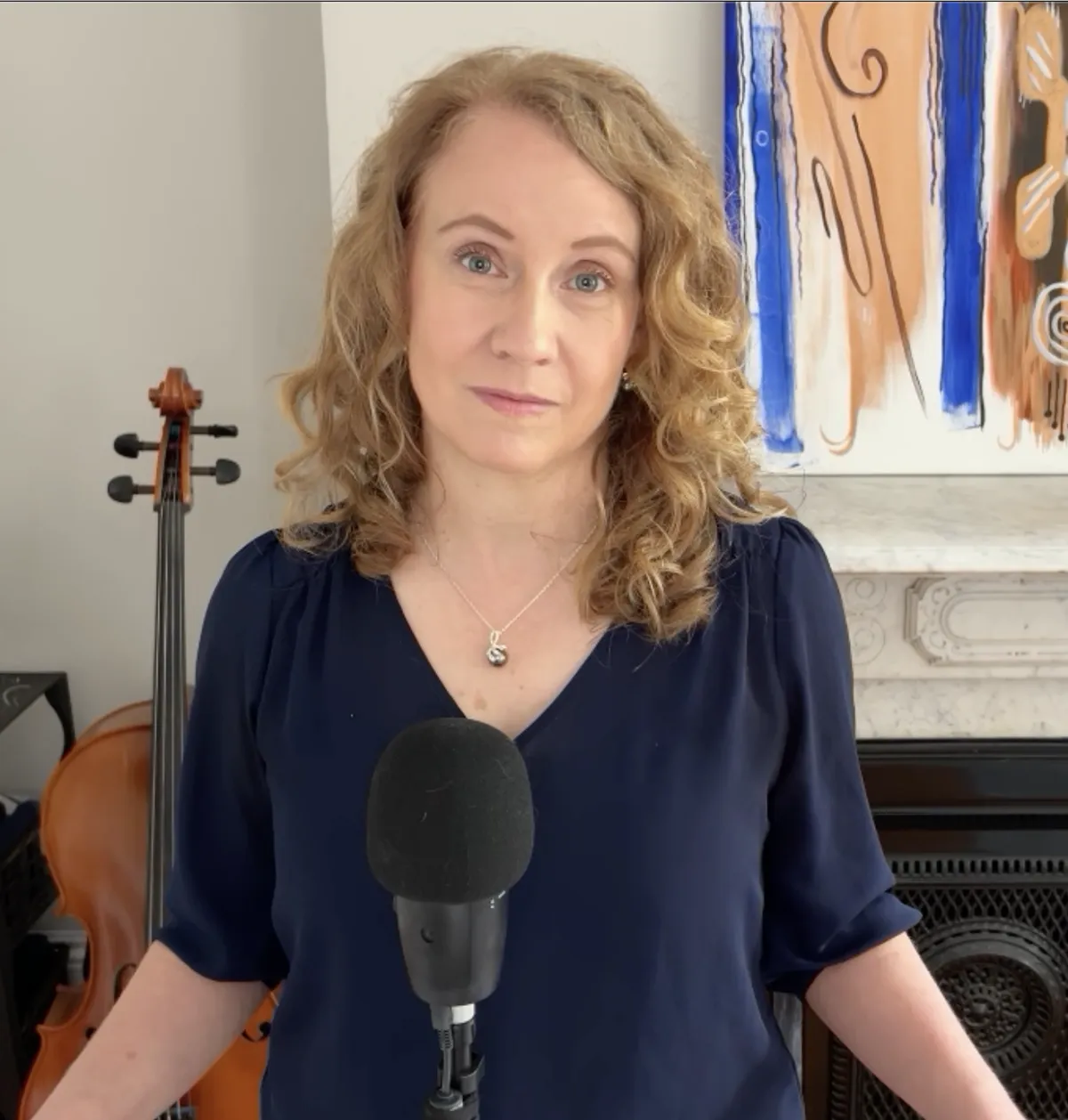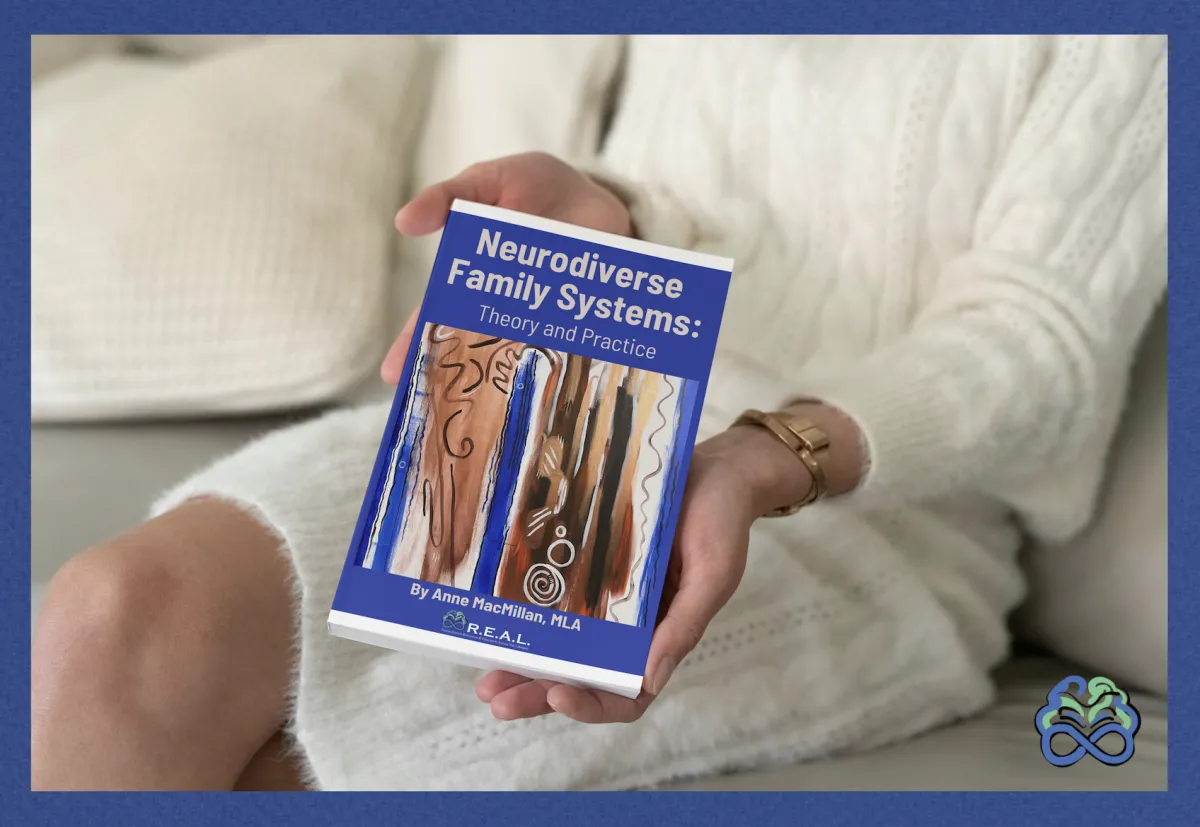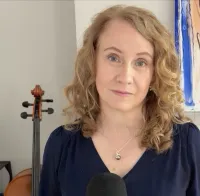
MacMillan's 10-Step Neurodiverse Family Systems Approach:
A Comprehensive Framework
to support neurodivergents and their families throughout adulthood.

Anne MacMillan, MLA
Founder of the 10-Step Neurodiverse Family Systems Approach, Speaker, Researcher, Consultant, Coach, Educator and Expert Witness
About Anne MacMillan
I built my original Neurodiverse Family Systems Theory on my education, personal life experience, and the professional experience I gained in the private neurodiverse services practice I founded in 2017.
Today, my services extend to support other professionals who have come to the new realization that neurodiversity is at the heart of many of the relationship challenges their adult clients face. Professionals can earn my Neurodiverse Family Systems Educator Credential (NFS-E) then use my practical 10-Step educational system, including quantitative assessments and support resources, to help their clients comprehend their relationship challenges and find the happiness and peace they deserve.
I have a research-based master's in psychology from Harvard University and studied developmental psychology as an undergrad. I received the Director's Thesis Award at Harvard for my original research on Level 1 autism and intimate life partnerships -- some of the first quantitative research on the subject in the world.
Altogether, I have over 50 years of personal life experience with neurodiverse family systems, over 20 years of personal life experience with neurodiverse intimate life partnerships, and 8 years of professional experience working with individuals managing the challenges of neurodiverse family systems.
I self-identify as a high body empathetic neurodivergent who just might also be a bit attention neurodivergent (ADHD). I am not autistic.
Our Services
Level 1 autism has a significant impact on dating, marriage, parenting, separation and divorce. Yet many individuals in neurodiverse intimate life partnerships (or life partnerships between autistics and non-autistics) had no idea that one partner was on the spectrum before tying the knot. Professionals, confused by the autism and Neurodiverse Relationship Dynamics (NRD), have offered misdiagnoses and poor advice, adding to the burden Level 1 autistics and their family members have faced.
Likewise, Level 1 autistic adults have little career support, facing the work world with little to no recognition that their autism affects their professional relationships.
R.E.A.L. Neurodiverse seeks to provide services that support these unmet needs.
MacMillan's Neurodiverse Family Systems Theory
Autistics and non-autistics perceive and navigate the social world differently. These differences create a phenomenon I term 'Neurodiverse Relationship Dynamics' (NRD).
Due to differences in neurological functioning, and at no fault of any family member, NRD contribute to perpetual cycles punctuated by emotional explosions called 'intermittent trauma spikes.'
Autistics and non-autistics also experience empathy differently, with autistics experiencing what emotion-sharing empathy' and non-autistics experiencing 'body empathy.' Empathy differences as well as different levels of 'empathic-emotion intensity' and 'emotion-origin awareness' can contribute to the trauma experienced during intermittent trauma spikes.
Both non-autistics and autistics can engage in harmful narcissistic behaviors within neurodiverse family systems. Increasing awareness of NRD can support all family members in reducing the level of narcissistic behaviors and in responding to them appropriately.
Neurodiverse families are commonly made up of three primary types of neurodivergents: autistics, attention neurodivergents (ADHD), and high body empathetics. And, of course, sometimes other neurodivergents and true neurotypicals crop up in neurodiverse famlies as well. All members of neurodiverse families need and deserve support regardless of neurology.
The tendency for individuals to select intimate life partners that are familiar to them alongside the fact that neurodiversity has a genetic component means that individuals from neurodiverse families commonly have children with other individuals from neurodiverse families, passing neurodiversity from generation to generation and creating the phenomenon of neurotribes.
Individuals in neurodiverse families commonly take upon themselves particular roles associated with both individual and systemic functions within their neurodiverse family systems. These roles are facilitated by the different neurologies and are more intractable than roles in neurotypical families. Gaining awareness of the roles and their functions can support individuals in neurodiverse family systems as they make sense of the relationship confusion they are experiencing and then make decisions and take actions to improve their lives.
Most professional services are designed with neurotypicals from neurotypical families in mind, abandoning neurodivergents from neurodiverse families to inadequate supports that tend to be irrelevant to their actual family experience and the relationship challenges they face in their daily lives.
I believe the first step to overcoming all this confusion is to have a foundational understanding of empathy differences, Neurodiverse Relationship Dynamics (NRD), and the manner in which trauma and multigenerational behavioral patterns (facilitated by neurodiversity) affect neurodivergents within neurodiverse family systems.
My original Neurodiverse Family Systems Theory and my 10-Step Neurodiverse Family Systems Approach seek to fill this gap and to provide professionals and members of neurodiverse families the information they need so all individuals from neurodiverse families can find the happiness and peace they deserve.

Anne MacMillan, MLA
Founder of the R.E.A.L. 10-Step Neurodiverse Family Systems Approach, Speaker, Researcher, Consultant, Coach, Educator and Expert Witness

MacMillan's 10-Step
Neurodiverse Family Systems Approach

10 Things to Know about Neurodiverse Relationships
Neurodiverse marriages look very "normal" from the outside.
The basics:
A neurodiverse relationship is a relationship between a typically developing, or “neurotypical,” person and a person with high-functioning autism. High-functioning autism in adults can be difficult to recognize. Many older adults on the autism spectrum were never diagnosed as children. Many grow up, get married and have successful careers without knowing they are on the autism spectrum.
Neurodiverse marriages are every bit as much mixed marriages as mixed-orientation marriages or mixed-faith marriages. In neurodiverse marriages the incompatibilities are neurological incompatibilities rather than sexuality or religious incompatibilities.
Autism affects communication and communication is an essential part of marriage and adult relationships. Communication is an essential part of marriage and both partners in neurodiverse relationships tend to experience distress related to communication difficulties. Neurotypical people and people with autism communicate differently.
As autism has a genetic component, many neurodiverse couples have children on the autism spectrum. As autism is more easily recognizable in children than adults, many parents on the autism spectrum are diagnosed only after a child is diagnosed. The presence of children on the autism spectrum contributes more stress to the parents’ marriage.
In the early days of neurodiverse relationships, both partners may believe they have found great compatibility. The neurotypical partner often finds great enjoyment in helping the partner with autism navigate social situations. The partner with autism may find the neurotypical partner to be more accepting than other people.
Later on in relationships, both partners tend to experience great dissatisfaction. Neurotypical partners feel deprived of emotional, social and sexual connection. Partners with autism feel controlled and manipulated and as if typically developing partners aren’t doing enough for the marriage. Neurotypical partners, meanwhile, finds themselves feeling drained because they give too much.
Neurodiverse marriages look very “normal” from the outside. Extended family members, community members and colleagues usually have little idea that so much distress is going on within their friends’ and loved ones’ marriages.
Neurotypical marriages are vulnerable to domestic abuse, most often psychological, sexual and financial, although sometimes physical abuse does occur. While marriage is a foundational component of society, it is inappropriate for professionals, clergy and loved ones to encourage individuals to remain in abusive relationships.
Neurodiverse marriages are vulnerable to high-conflict divorce. Sometimes, mixed divorces cost tens or hundreds of thousands of dollars. Attorneys are the only ones who benefit. Both partners and their children experience extreme duress.
Autism is not easy. It is not easy for people who have it and it is not easy for their loved ones. Both partners in neurodiverse marriages need resources and support — not only the partners with autism. Both partners are equally important. Neurodiversity includes everyone.

Pre-Order Your
Copy Today
Neurodiverse Family Systems: Theory and Practice
By Anne MacMillan, MLA
© 2024 R.E.A.L. Neurodiverse
All Rights Reserved
anne@REALneurodiverse.com
Text or Call: (617) 996-7239 (United States)
